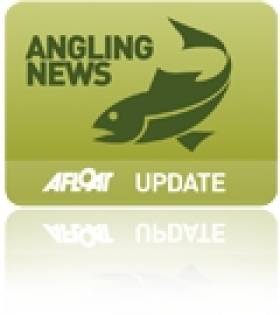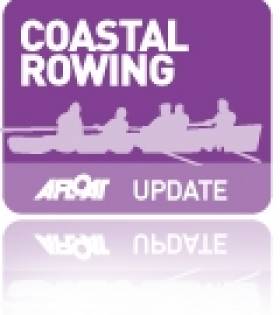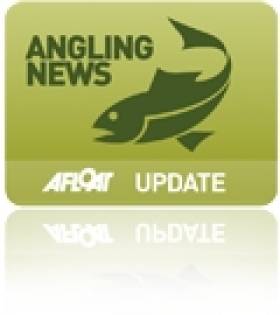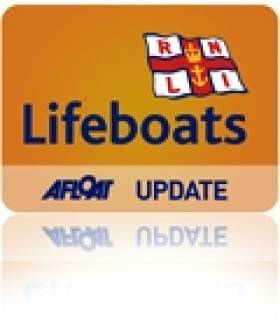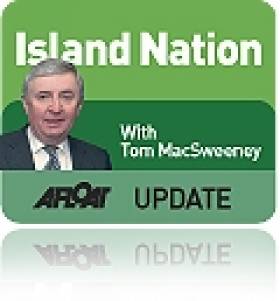Displaying items by tag: AllIreland
Junior Fly Fishing All-Irelands Coming This Weekend
#Angling - Tyrones's Fintona waters will come alive this weekend for the All-Ireland Junior Fly-Fishing Championships on Sunday 31 August, as the Ulster Herald reports.
Kicking off in Donegal on Saturday 30 August, Ireland's best young anglers aged between 15 and 18 will compete on some of the same lakes that hosted last year's Youth Fly Fishing Worlds in the border region, and are set to host the best in the world again next year.
The Ulster Herald has much more on the story HERE.
#AllIrelandCoastal: East Ferry of Cork have been named Club of the Championships for the All-Ireland Coastal Rowing Championships. The event was held this year at Carnlough in Co Antrim, and next year’s venue will be in County Kerry.
All-Ireland Coastal Rowing Championships:
Club of the Championships: East Ferry RC, Cork.
Best Adult Crew: Cairndhu Senior Ladies.
Best Underage Crew: Portmagee, Kerry (under-12 girls).
Outstanding Rower: Lisa Cronin, Kilmacabea, Cork.
Awards for Services to Coastal Rowing: John Flynn, Wicklow RC and (ICRF): John O’Leary, Kinsale and Dock RC.
Special Award (from host club Carnlough): Bill Deasy, Myross, and Irish Coastal Rowing Rowing Federation.
Connacht Calls for Female Sea Anglers
#Angling - Connacht hopes to encourage more women sea anglers to compete for the province at All-Ireland level, as the Mayo Advertiser reports.
The Connaught Council of the Irish Federation of Sea Anglers (IFSA) wants to field a full team for the All-Ireland Ladies Interprovincial Shore Angling Championships in February.
To this end, it plans to provide greater support and resources for female anglers in the west, and is open to welcoming women of all levels and experience into the fold.
“If you are not already part of a club, the first step is to become a member, said Connaught Council team manager Brian Reidy. "These clubs are social, fun, and provide great support for novice anglers."
The Mayo Advertiser has more on the story HERE.
Howth Lifeboat Shows True Colours
Howth Lifeboat at 1800 hrs the night before the big match - inspite of our photograph we are assured that any Kerry sailors in difficulty on the Irish Sea this weekend will be treated the same as everyone else.
Meanwhile the last manager to lead Dublin into All-Ireland SFC battle has given his blessing to Pat Gilroy's troops as they seek to snare pre-match favourites Kerry and bring Sam back to the capital for the first time in 16 years.Dr Pat O'Neill has savoured the buzz around the city this week and feels "very confident" that the current team can emulate the All-Ireland achievement of his 1995 heroes. Up the Dubs!
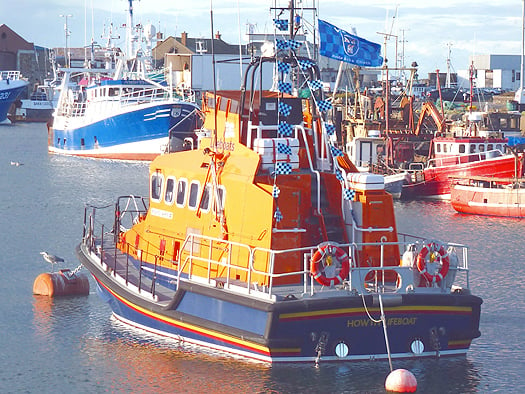
Irish Match Racing Gets Recognition it Deserves
Match Racing has been given full approval by the national sailing association. I reported a few weeks ago that Match Racing Ireland, which organises the racing, had made application to the Irish Sailing Association. This has been approved.
"We are now a recognised Category 3 organisation within the ISA and hope this will mean we can send a representative to the All-Ireland championships, dependent on an invitation to us. Being recognised as a formal body is important for funding or when individual teams need support at international events," Ric Morris of Match Racing Ireland told me. "Bringing people through from college sailing is something we are very interested in and we are at the moment targeting the 2012 World University Match Racing Championships in France."
That may mean having to get hold of a couple of J24s, the boats used for that event. Match racing here has so far been concentrated in the ISA J80 fleet. Ric said he was "confident match racing will continue to flourish. The question will be the scope of it. Howth, Lough Derg and Dun Laoghaire clubs have confirmed they will run match racing next year."
Next month Kinsale will be the location for two match racing events - the ISA Women's Match Race Championship on October 9 and 10 followed by the Open Match Racing Championships from October 22-25.
Dragons Are Still Alive
The English are known for preferring that the rest of the world would speak their language. That attitude resulted in a Norwegian-designed yacht being called a Dragon.
Sailed by a helm and crew of two, it was designed by Norwegian Olympic sailor, Johan Anker, in 1929 with two berths for cruising in his home waters. The boat became so popular that, within ten years, it had spread all over Europe and become established in the top echelons of yacht racing. The Clyde Yacht Association presented the Gold Cup to the class in 1937.

Dragons competing off Kinsale. Photo: Bob Bateman. Gallery HERE.
During negotiations for the official recognition of the boat by the international sailing federation, a translation of Anker's name into 'Draggen' was rejected by the English yachting association which found 'Dragon' easier. The name was applied to the boat. Johan Anker was killed in World War Two. After the war his family waived design royalties to allow English yards build the boats, "as a token of appreciation for British support of Norway" when it was invaded by the Germans. That led to an increase in its popularity.
Dragons raced their South Coast Championship off Kinsale with ranking points to be won for the World and European Championships. Local club sailors were hoping to end class domination by Dun Laoghaire, but just fell short of their target.
Andrew Craig sailing Chimaera took the South Coast title back to the Royal St.George in Dun Laoghaire, while his clubmate Martin Byrne in Jaguar was second. Cameron Good, Henry Kingston and Simon Furney, a long-established Kinsale team sailed Little Fella, to third overall, with club colleague James Mathews helming Diva, crewed by Rick and Rob Johnson in fourth.
I have heard the Dragons described as "old worldly" but the class is alive and well to judge from the racing in plenty of breeze off Kinsale, where the Dragon Gold Cup, a world event, will be held in 2012. Kinsale Yacht Club will also host the national championships next year.
KYC is and will be, a busy place.
• This article is reprinted by permission of the CORK EVENING ECHO in which Tom MacSweeney writes maritime columns twice weekly. Evening Echo website: www.eecho.ie



























